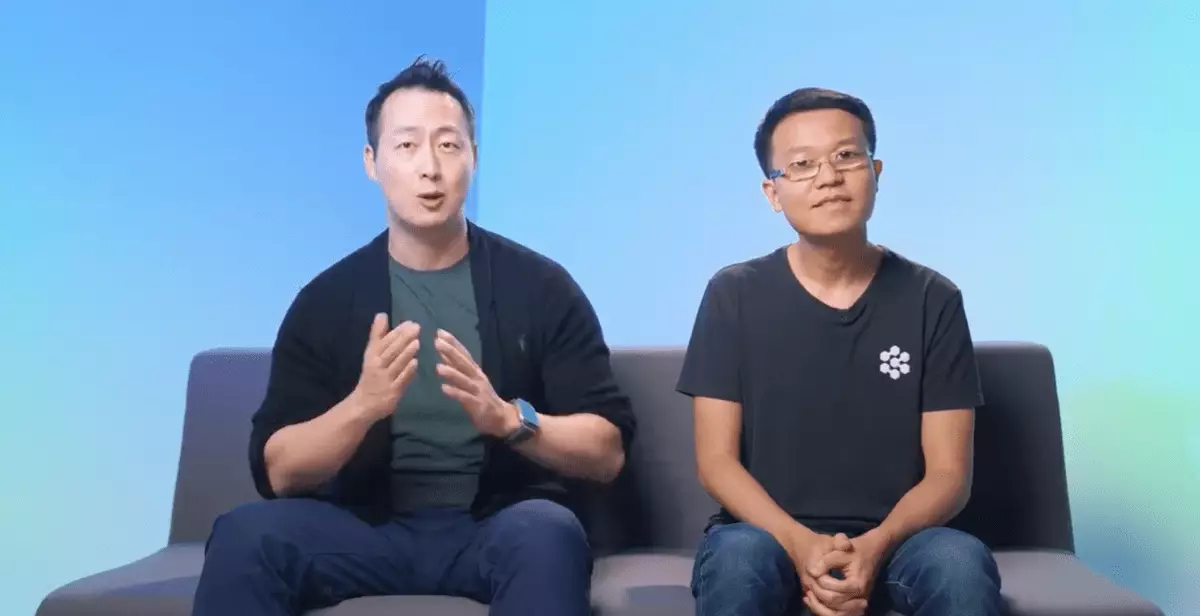In the high-stakes world of technology startups, acquisitions are often portrayed as straightforward milestones—an exit strategy, a growth lever, or a strategic move. But beneath the surface, negotiations reveal complex power dynamics, shifting loyalties, and a tug-of-war between corporate giants and innovative startups. Windsurf’s recent saga exemplifies this chaos, exposing not only the strategic maneuvers of big tech firms but also the emotional toll on the startups they touch.
The initial promise of a partnership with OpenAI evaporated, giving way to an unexpected shift toward Google DeepMind. This pivot underscores a broader trend: large companies opting for “reverse acquihires,” where they acquire talent and licensing rights but avoid full-blown acquisitions to sidestep antitrust concerns. Such tactics evoke questions about the true winners and losers in these transactions. Do startups and their employees truly benefit, or are they simply pawns in a larger game of regulatory avoidance and corporate consolidation?
This layered veneer of strategy often masks a harsh reality—teams are left wondering about their futures as founders are lured away or sidelined. Windsurf’s leadership, caught in the crossfire, found themselves navigating treacherous waters, struggling to preserve their innovations and team morale amid the shifting tides. The emotional resonance of these betrayals underscores a critical flaw in contemporary M&A culture: the human cost is often an afterthought, buried under legal clauses and financial valuations.
Leadership Turnover and the Fragility of Vision
At the heart of Windsurf’s tumult lies the departure of its charismatic CEO, Varun Mohan, and top researchers. Their exit, reportedly as part of Google’s licensing agreement, echoes a recurring theme—founders and key talent are increasingly seen as interchangeable assets rather than creators of long-term value. Such moves raise pivotal questions: Are startups merely incubators for talent, or are they autonomous entities with their own destiny? When giants prefer to hire rather than buy, what does that mean for innovation’s sustainability?
For Windsurf’s remaining team, these developments must have felt like a coup de grâce. An all-hands meeting, initially expected to celebrate an OpenAI deal, instead delivered news of the Google deal and mass departures. The resulting atmosphere—laden with anxiety, disappointment, and even tears—exposes a critical flaw in how the industry treats human capital: as replaceable parts rather than the core of the enterprise. This emotional fallout reveals a systemic flaw in startup culture, where the loss of a single leader can cascade into a broader crisis of confidence.
Yet, amidst the chaos, Windsurf’s leadership displayed strategic resilience. Co-founder Jeff Wang’s narrative highlights an attempt to rally the remaining team, emphasizing that the core IP and talent remained intact, and that opportunities still existed. This is a stark reminder that in the rapid world of AI, resilience and adaptability often determine whether a startup survives or dissolves.
The Human Element in Tech Mergers and Acquisitions
The most compelling part of Windsurf’s story is how the company prioritized employee welfare during an acquisition process that was anything but certain. The deal’s structure—waivers of cliff vesting, accelerated vesting of equity, and payouts for all employees—signals an acknowledgment that human assets are not commodities but indispensable partners in innovation.
This focus on “taking care of employees” signifies a shift in corporate M&A philosophy, emphasizing empathy and fairness rather than ruthless cost-cutting. It challenges the traditional narrative that acquisitions are primarily about shareholder returns; instead, it values the loyalty and well-being of the team. Such a mindset could set a new standard in the industry, encouraging large firms to treat startups not just as sources of technology or talent, but as communities worth investing in.
Windsurf’s effort to retain its team amidst uncertainty suggests that ambitious startups still believe in the long-term potential of their visions. Even if the future isn’t as initially envisioned, preserving morale and equity recognizes a fundamental truth: people are the real drivers of innovation, and neglecting their welfare often leads to failure—not just from within but also from outside.
A New Dawn for Startup-Corporate Partnerships?
This episode from Windsurf exemplifies the complexity of modern corporate strategy—where licensing, talent acquisition, and technology transfer intertwine in unpredictable ways. As big tech consolidates its position, startups face a choice: either become appendages within larger ecosystems or fight to retain control over their innovations and teams.
The winds of change are blowing fiercely, forcing startups and investors to rethink what success truly means. It’s no longer just about exit valuations but about nurturing resilient, motivated teams capable of innovating in a fiercely competitive environment. Ultimately, Windsurf’s story underscores that the most sustainable victories will come from approaches rooted in respect, strategic foresight, and a deep understanding of the human side of technology development.
This narrative invites us to challenge the existing paradigm: if the industry truly values innovation, it must also value those who create it, fostering trust and loyalty in a space often characterized by fleeting allegiances and opportunism.

